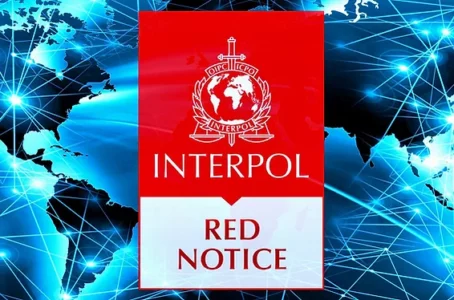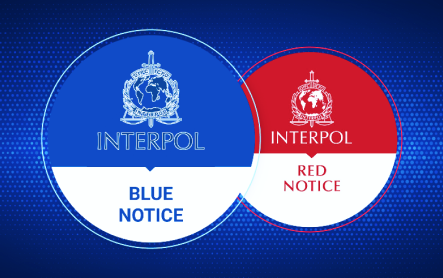
Extradition Lawyers in Canada
Canada actively cooperates with many countries and international organizations on law enforcement matters. If a person is suspected of committing a crime in another country, Canada can extradite them to face punishment based on bilateral or international agreements.
One of the key tools for initiating extradition is an Interpol Red Notice. Although it does not have the legal force of an arrest warrant, a Red Notice can restrict a person’s freedom of movement and even lead to detention. Therefore, it’s important to secure legal support from qualified professionals as early as possible.

Our team of experienced lawyers, led by Anatoly Yarovoy, are ready to provide comprehensive legal assistance in the extradition process in Canada, offering individual and practical solutions for each specific case.
How does the Red Notice work in Canada?
An Interpol Red Notice is an international cooperation tool used to detain individuals wanted by law enforcement agencies in one of the Interpol member countries. It states that a person is sought for arrest and extradition.
A Red Notice does not have the legal authority of an arrest warrant; it is merely a request for international cooperation. It contains information that allows for the identification of a wanted person’s location, as well as for their temporary arrest until an official extradition request is received. Interpol issues such notices based on a national arrest warrant.
The red notification contains the following information:
- Identification information: full name and possible aliases, date and place of birth, citizenship, photographs, and biometric data;
- Information about the crime: details of the charges or verdict, legal classification of the crime;
- National arrest warrant;
- Request for temporary arrest pending the submission of an official extradition request.
In Canada, an Interpol red notice is used as an informational tool rather than a mandatory arrest warrant. The Royal Canadian Mounted Police (RCMP) reviews the validity of the notice and its compliance with national laws. The notice is not considered automatic grounds for arrest.
If a Red Notice is considered valid, an individual can be detained based on national procedures. The arrest must be accompanied by an official request for provisional arrest and extradition.
An individual has the right to a judicial hearing where the legality of their detention and the compliance of the notification with Canadian human rights protection standards are assessed.
Lifting of the Red Alert in Canada
In Canada, a red notice does not have the status of an arrest warrant, but it can serve as a basis for temporary detention and restrict a person’s freedom of movement. If you believe that the notice was issued improperly, it can be contested through the Canadian legal system and the Commission for the Control of Interpol’s Files (CCF).
The first step is to consult with a lawyer who specializes in Interpol cases and international legal issues. A professional assessment of the case will help determine the validity of the notification, any potential violations of the Interpol charter, and the available avenues for appeal.
In Canada, the Royal Canadian Mounted Police (RCMP) is analyzing red notices received from the Interpol database. A lawyer can request details about the notice, as well as information on who initiated the request and on what grounds.
The Commission for the Control of Interpol’s Files (CCF) is an independent body that reviews complaints about notifications and checks their compliance with the Interpol Constitution. In the prepared request to Interpol you need to provide your personal information, a description of the situation, and arguments in favor of removing the notification, as well as evidence of violations.
The application is to be submitted to the CCF in either English or French. All documents must be notarized and translated. If the notification is found to be in violation of Interpol’s rules, it will be removed from the database.
If a notification has led to detention or restriction of freedom, it is necessary to file the appropriate petition. The Canadian court evaluates whether the Red Notice complies with the country’s national laws and international obligations. The court may decide that the notice cannot be applied any further.
A lawyer can also submit an official request to the RCMP to cease the enforcement of the notice throughout Canada if its illegality is proven.
Extradition Law in Canada
Extradition is the legal process of transferring a person sought from one country to another for criminal prosecution or to serve a sentence that has been issued. In Canada, this process is strictly regulated by national legislation.

The Extradition Act is the primary legal document that governs extradition in Canada. It establishes the conditions under which extradition can be carried out, the procedure for reviewing a request, as well as the rights of individuals who are subject to such requests.
The Constitution of Canada ensures the protection of fundamental human rights.
- The right to a fair trial;
- Protection from cruel punishment (Article 12 of the Canadian Charter of Rights and Freedoms);
- Guarantees of procedural fairness.
Canada has signed bilateral and multilateral agreements with more than 50 countries, including the USA, the UK, France, Germany, and other key partners.
Extradition to Canada
When Canada requests the extradition of an individual from another country for criminal prosecution or to serve a sentence, the process is strictly regulated by international and national law.
Canadian law enforcement agencies or prosecutors submit an extradition request to the Canadian Department of Justice. The request must include a description of the crime committed, a copy of the national arrest warrant, and detailed evidence supporting the charges.
The Canadian Department of Justice is reviewing the request and assessing its compliance with the principle of dual criminality, as well as the presence of sufficient evidence to initiate criminal proceedings or enforce a sentence. Following this, the Department prepares an official appeal to the requested country.
The request is transmitted through diplomatic channels or directly to the governmental bodies of the country where the person sought is located. It includes complete information about the crime, legal grounds for extradition, and guarantees of human rights protection.
The competent authorities of the country that received the request analyze its legality and justification, as well as its compliance with national legislation.
If the person requested is detained, a court hearing is held where the suspect can present their defense and challenge the request. The court makes a decision on the legality of the extradition, but the final decision may still rest with the government of the country.
If extradition is approved, the wanted individual is handed over to Canadian authorities. Law enforcement agencies will arrange for the person’s transportation to Canada.
Extradition from Canada
Extradition from Canada begins after receiving an official request for extradition. The request must include evidence supporting the charges and a national arrest warrant.

The Ministry of Justice is checking whether the request complies with the requirements of Canadian legislation, as well as ensuring there is no threat of human rights violations in the country. If the request meets the requirements, the Ministry authorizes the start of the extradition process.
The case is being transferred to court, where the person in question has the right to defense and to present evidence. The court evaluates the legality of the detention and arrest in Canada and the adherence to all procedural requirements.
Canada may refuse extradition if:
- The crime is of a political nature.
- The individual faces the death penalty, torture, or cruel treatment.
- The crime does not fall under Canadian criminal law.
- The individual had already been convicted or acquitted of the same crime in Canada.
- The request violates rights guaranteed by the Canadian Charter of Rights and Freedoms.
The Minister of Justice makes the final decision on extradition, taking into account the court’s findings, potential humanitarian and legal risks. The Minister can deny extradition if it contradicts the Canadian Charter of Rights and Freedoms or international obligations.
Countries that do not have extradition rights with Canada
The extradition process in Canada is governed by international agreements concluded with other countries. However, treaties have not been signed with all countries, which creates certain legal nuances and limitations.
Countries not subject to extradition are countries that do not have extradition agreements with certain nations or do not participate in international extradition treaties at all. Such countries are not legally obligated to hand over individuals accused or convicted of crimes in other states for prosecution or to serve their sentences.
Extradition treaties are absent with some countries due to significant differences in legal systems, political stances, conflicting interests, or a complete lack of diplomatic relations.
As of December 2024, Canada has not signed extradition treaties with the following countries:
- China;
- Russia
- Saudi Arabia;
- Iran
- North Korea
- Belarus;
- Ukraine;
- United Arab Emirates
- Syria;
- Tunisia;
- Vietnam;
- Andorra;
- Cuba;
- Butane.
This list is not exhaustive, and the presence or absence of an extradition treaty can depend on current diplomatic relations and international obligations. Even without a formal treaty, Canada may consider extradition requests based on the principle of reciprocity or within the framework of international conventions. However, the lack of a formal agreement can complicate and prolong the extradition process.
How can our extradition lawyers in Toronto help?
If you’re facing an extradition request to or from Canada, our lawyers in Toronto are ready to provide professional legal assistance. We offer comprehensive solutions to protect your interests.
Our experienced attorneys provide clients with the following services:
- Assessment of the legality of the extradition request;
- Analysis of the presented evidence and legal documents;
- Determining possible grounds for appealing extradition;
- Preparing for extradition hearings, presenting arguments in favor of the client before a Canadian court;
- Drafting legally justified requests and appeals to higher authorities;
- Challenging an extradition request;
- Coordination of the defense process at the international level.
Contact us right now for an initial consultation and to discuss the next steps for successfully appealing an extradition request. Our experienced lawyers will provide quality legal assistance and do everything possible to achieve a fair outcome!









